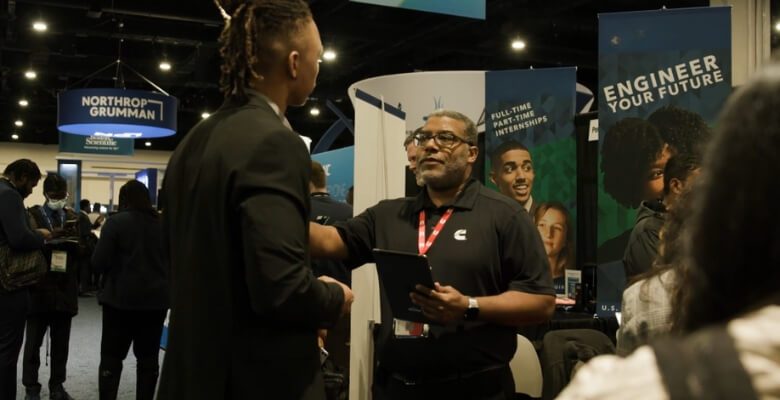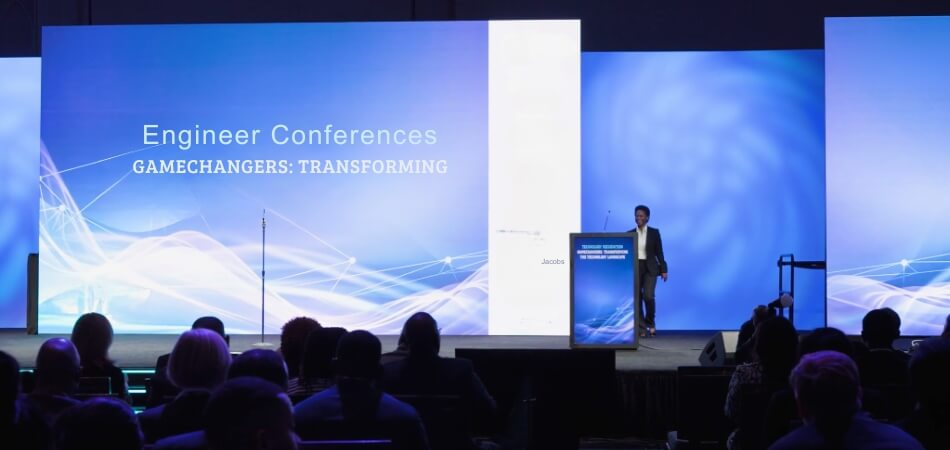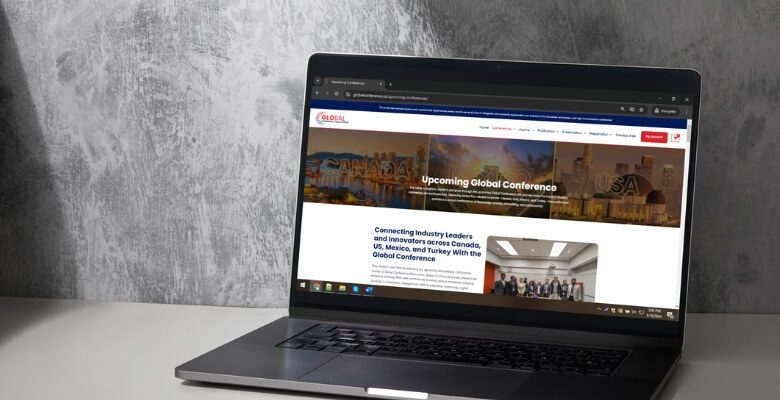Attending conferences can be a valuable experience for entry-level engineers looking to expand their knowledge and connect with industry professionals. However, getting through these events may feel daunting at first. You might be wondering, “How to attend conferences as an entry level engineer?”
To attend a conference, first, research events relevant to your field and register in advance. Prepare by reviewing the agenda, identifying key speakers, and setting goals for what you want to learn. Make sure to gather essential documents, such as your resume and business cards, to network effectively during the event.
Are you curious about the best practices for attending conferences? If so, keep reading this article. You will find all the necessary information and tips to make the most of your experience as an entry-level engineer at conferences.
Importance of Conferences for Entry Level Engineers
The air is alive with innovative ideas, industry experts, and opportunities waiting around every corner. Engineering innovates creation through accessing and sharing knowledge. In that circumstance, engineering conferences are magical in that way. What’s the point of entry-level engineers caring about this? The significance of conferences for those just starting in the field will be explained below.

Networking Opportunities
For entry-level engineers, building a professional network is crucial, and conferences provide an ideal platform for this. At the conference, they can connect with experienced professionals, potential mentors, and peers from around the world. These connections can lead to job opportunities.
Knowledge Expansion
At conferences, you’re surrounded by a wealth of knowledge. From keynote speeches to interactive workshops and panel discussions, these events provide an array of learning opportunities. For entry-level engineers, soaking up this knowledge.
Exposure to Industry Trends
In the rapidly changing field of engineering, staying ahead of the curve is crucial. Conferences offer a front-row seat to the latest industry trends, innovations, and technologies. For entry-level engineers, this exposure is invaluable, providing insight into the direction of their chosen field and influencing their career development.
Building Confidence and Credibility
Stepping into the field of conferences can be intimidating, but it’s also a chance to showcase your expertise and passion for your field. By actively participating in discussions, asking questions, and sharing insights, entry-level engineers can build confidence and establish credibility within the industry.
Access to Career Opportunities
Conferences aren’t just about learning and networking; they’re also fertile ground for career opportunities. From job fairs to recruitment events and informal networking sessions, entry-level engineers have the chance to connect with potential employers and explore different career paths.
How to Attend Conferences as an Entry level Engineer?
Have you just begun your journey as an entry-level engineer? Conferences can be your entryway to success. So, how to attend conferences as an entry-level engineer? Follow these steps to make the most of these invaluable opportunities.
Step 1: Set Clear Goals
Before the conference, define what you want to achieve. Whether it’s networking, learning new skills, or exploring job opportunities, having clear objectives will guide your experience.
Step 2: Research the Agenda
Familiarize yourself with the conference schedule. Identify sessions, workshops, and speakers that align with your goals and interests. This will help you prioritize your time effectively.
Step 3: Prepare the Introductory Pitch
Prepare a concise and compelling introductory pitch that highlights your skills, experiences, and career aspirations. You never know when you’ll meet a potential employer or mentor.
Step 4: Engage in Networking
Don’t be afraid to initiate conversations with fellow attendees. Approach networking with curiosity and authenticity and remember to listen as much as you talk.
Step 5: Take Detailed Notes
During sessions and workshops, jot down key takeaways and insights. These notes will serve as valuable references and reminders long after the conference is over.
Step 6: Follow-up
After the conference, reach out to the contacts you’ve made. Send personalized LinkedIn requests or emails thanking them for their time and expressing your interest in staying connected.
Benefits of Attending Engineering Conferences for Entry Level Engineers
Attending engineering conferences is highly beneficiary for entry level engineers or engineers willing to join their first event. There are several advantages of attending engineering conferences, including networking, learning, innovation, and collaboration. Conferences can significantly improve the growth of your engineering career through guidance. Below we have discussed some of the core benefits of attending engineering conferences:
- Networking Opportunities: Conferences provide a platform to meet and connect with industry professionals, potential mentors, and peers, which can lead to valuable relationships and future job opportunities.
- Exposure to Industry Trends: Attending conferences allows you to learn about the latest technologies, trends, and best practices in your field, keeping you updated with current industry standards.
- Career Advancement: Participating in conferences can enhance your resume by demonstrating your commitment to professional development and staying informed about industry advancements.
- Access to Resources: Attendees often receive access to conference materials, such as papers, presentations, and industry reports, which can be valuable resources for learning and reference.
- Building Professional Reputation: Being present at conferences and engaging in discussions can help establish your presence in the industry and demonstrate your proactive approach to professional growth.
How Entry Level Engineers Can Overcome Conference Challenges?
Conferences offer valuable opportunities for entry-level engineers, but they can also present unique challenges. Here’s a guide to overcoming these obstacles and making the most of your conference experience.
Step 1: Plan Ahead
Consider what you want to accomplish before you get swept up in the excitement of the conference. Your conference activities will be guided and maximized by clear goals, whether it’s to network with industry professionals, learn about new technologies, or gain insight into career paths.
Step 2: Attend Orientation Sessions
Many conferences offer orientation sessions for first-time attendees. Take advantage of these sessions to familiarize yourself with the conference layout, schedule, and networking opportunities.
Step 3: Find a Buddy
If you’re attending the conference alone, consider finding a buddy or mentor to guide the event with. Having a support system can make networking less intimidating and provide valuable guidance.
Step 4: Take Breaks
Conferences can be intense, with back-to-back sessions and networking events. Remember to take breaks to recharge and avoid burnout. Use this time to reflect on what you’ve learned and prepare for the next session.
Step 5: Stay Flexible
Things don’t always go as planned at conferences. Sessions may be canceled, or you might not meet the people you intended to. Stay flexible and open-minded, taking advantage of unexpected opportunities that come your way.
Step 6: Reflect and Learn
After the conference, take time to reflect on your experience. What went well? What could you improve next time? Use this feedback to refine your approach for future conferences.
How to Prepare for Your First Conference as an Entry Level Engineer?
Have you ever attended an engineering conference? Are you excited? Preparation is key to making the most of this valuable opportunity. Attendees are expected to join from all over. Here are the essential steps to ensure your first conference is a success.
1. Set Clear Goals
Before the conference, take some time to define what you hope to achieve. Whether expanding your professional network, gaining industry insights, or exploring job opportunities, having clear goals will help guide your conference experience.
2. Research the Conference
Familiarize yourself with the conference agenda, including keynote speakers, workshops, and networking events. Identify sessions that align with your interests and career goals, and make note of any must-attend events.
3. Prepare Your Elevator Pitch
Prepare a brief, engaging introduction that highlights your skills, experiences, and career aspirations. This introductory pitch will come in handy when networking with fellow attendees, so practice until it feels natural.
4. Dress for Success
Choose attire that is professional and comfortable. Whether it’s business casual or formal attire, dressing the part will help you make a positive first impression and feel confident throughout the conference.
5. Pack Essentials
Don’t forget to pack essentials such as business cards, a notebook, pens, and any materials you may need for workshops or presentations. Having these items on hand will ensure you’re prepared for any situation.
6. Brush Up on Industry Trends
Take some time to refresh your knowledge of current industry trends and hot topics. Being well-informed will not only impress potential employers but also enable you to engage in meaningful conversations with other conference attendees.
7. Practice Networking
Networking can be intimidating, especially for first-timers. Practice introducing yourself, asking questions, and actively listening to others. Remember, networking is about building genuine connections, so be authentic and approachable.
How to Find an Engineering Conference?
Are you interested in expanding your engineering knowledge and network? Finding the right engineering conference is crucial. Engineers and academics from all over Canada show their high interest in engineering conferences. The methods stated below will help individuals to attend engineering conference Canada with maximum opportunity. Here’s a step-by-step guide to help you discover the perfect engineering conference:
Research Online
Start by browsing websites of different conference organizer like Global Conference Alliance Inc., which offer extensive listings of engineering conferences worldwide. Filter your search based on location, date, and specific engineering disciplines.
Utilize Professional Networks
Tap into your professional networks, such as LinkedIn or engineering associations, to seek recommendations for conferences. Engage with fellow engineers to gather insights and firsthand experiences.
Check Industry Publications
Keep an eye on industry publications and journals for announcements and advertisements of upcoming engineering conferences. These sources often provide detailed information about conference themes, speakers, and registration.
Explore Social Media
Follow engineering-related hashtags and accounts on social media platforms like Twitter and Instagram. Many conferences promote their events on social media, allowing you to stay updated on the latest news and announcements.
Attend Local Events
Attend local engineering conferences, seminars, and workshops. These smaller-scale events can serve as valuable sources of information about larger conferences and networking opportunities.
Consult University Resources
If you’re a student or affiliated with a university, check with your academic department or career services office. They may have resources and recommendations for engineering conferences suitable for your interests and career stage.
Frequently Asked Questions
Curious about attending conferences as an entry-level engineer? Here are some frequently asked questions to guide you through the process and maximize your conference experience.
How Can I Afford Conference Expenses as An Entry-Level Engineer?
Many conferences offer discounted rates for students and early-career professionals. Additionally, consider seeking sponsorship from your employer or applying for scholarships and grants to cover expenses.
How Do I Choose Which Sessions to Attend?
Review the conference agenda and prioritize sessions relevant to your career goals and interests. Consider attending a mix of sessions to gain a broad perspective on industry trends and advancements.
What Should I Bring with Me to The Conference?
Pack essentials such as a notebook, pens, business cards, comfortable attire, and any materials required for workshops or presentations. Don’t forget to bring chargers and snacks to stay energized throughout the day.
How Can I Make the Most of Networking Opportunities?
Approach networking with an open mind and a genuine interest in connecting with others. Be proactive in initiating conversations, ask thoughtful questions, and follow up with contacts after the conference to maintain connections.
What if I Feel Overwhelmed or Out of Place at The Conference?
Remember that many attendees, including seasoned professionals, have felt the same way at their first conference. Take breaks when needed, seek out smaller networking events, and remind yourself of the value you bring to the table.
How Can I Stand Out During Conference Sessions and Workshops?
Engage actively by asking questions, sharing insights, and participating in discussions. Demonstrate your enthusiasm for learning and your commitment to professional growth, and don’t be afraid to contribute your unique perspective.
How Do I Use My Conference Experience for Career Advancement?
Reflect on your conference experience and identify key takeaways, connections made, and lessons learned. Incorporate these insights into your professional development plan, update your resume and LinkedIn profile, and share your conference highlights with colleagues and mentors.
Final Thought
Attending conferences as an entry-level engineer offers a plethora of opportunities for learning, networking, and career advancement. Armed with practical strategies and insider tips, you can guide these events with confidence and finesse.
Now you may have a good knowledge of how to attend conferences as an entry level engineer from the above discussion. This guide will help you not only maximize your conference experience but also prepare the way for future engineering success. Make the most of the resources and connections available to you, enjoy the journey, and develop your skills.







